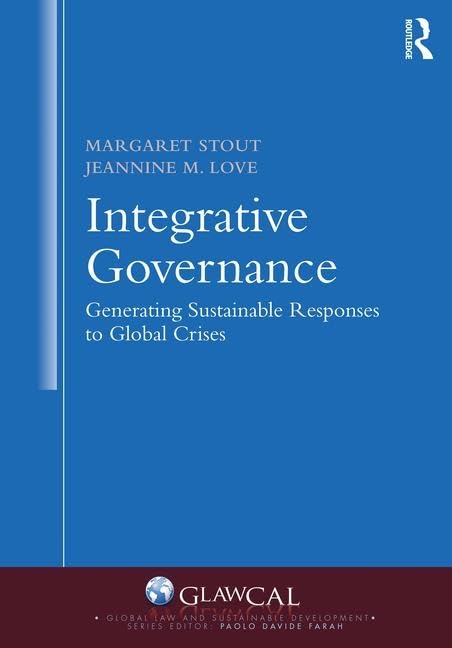Integrative Governance: Generating Sustainable Responses to Global Crises: Generating Sustainable Responses to Global Crises (Global Law and Sustainable Development)
Integrative Governance: Generating Sustainable Responses to Global Crises: Generating Sustainable Responses to Global Crises (Global Law and Sustainable Development) is backordered and will ship as soon as it is back in stock.
Couldn't load pickup availability
Genuine Products Guarantee
Genuine Products Guarantee
We guarantee 100% genuine products, and if proven otherwise, we will compensate you with 10 times the product's cost.
Delivery and Shipping
Delivery and Shipping
Products are generally ready for dispatch within 1 day and typically reach you in 3 to 5 days.
Book Details:
-
Publisher: Taylor & Francis Ltd
-
Author: Margaret Stout
-
Language: English
-
Edition: 1st Edition
-
ISBN: 9781138695733
-
Pages: 260
-
Cover: Hardcover
-
Dimensions: 9.9 x 7.1 x 0.8 inches
About the Book:
In Integrative Governance: A Relational Approach to Sustainability and Radical Self-Governance, Margaret Stout presents an innovative governance framework that challenges the dominance of Euro-American theories in the study of governance. The book critiques traditional governance models and offers a more globally inclusive, transdisciplinary perspective that is essential for addressing the complex, interconnected crises of sustainability—spanning social, economic, and environmental issues.
Stout's work introduces the concept of Integrative Governance, grounded in relational processes and practices that prioritize inclusivity and non-colonization. The book presents a comprehensive Governance Typology, which includes a wide range of theoretical perspectives, including ontological assumptions, psychosocial theory, epistemology, political theory, and ethics. Through this typology, the author examines the philosophical foundations of governance and proposes a framework that can be used as a tool for evaluating and measuring governance practices.
The book also explores how this radical approach to self-governance is already being implemented in contemporary social movements, advocating for a shift in governance that embraces social, economic, and environmental interconnectedness. Scholars, activists, and practitioners are encouraged to use this ideal-type framework to evaluate real-world practices and push for transformative change through collaborative action. This book is a compelling invitation to rethink governance models and envision a more inclusive, sustainable future.





